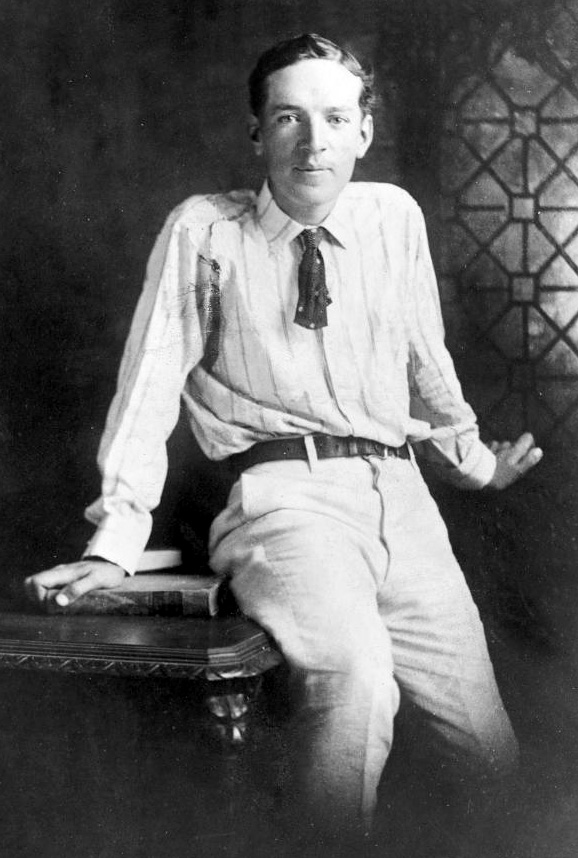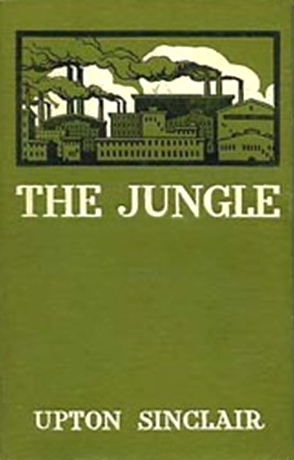Upton Sinclair
September 20, 1878 – November 25, 1968
Inducted in 2015
Fiction
Courtmartialed (1898)
Saved By the Enemy (1898)
The Fighting Squadron (1898)
A Prisoner of Morro (1898)
A Soldier Monk (1898)
A Gauntlet of Fire (1899)
Holding the Fort (1899)
A Soldier's Pledge (1899)
Wolves of the Navy (1899)
Springtime and Harvest (1901)
The Journal of Arthur Stirling (1903)
Off for West Point (1903)
From Port to Port (1903)
On Guard (1903)
A Strange Cruise (1903)
The West Point Rivals (1903)
A West Point Treasure (1903)
A Cadet's Honor (1903)
Cliff, the Naval Cadet (1903)
The Cruise of the Training Ship (1903)
Prince Hagen (1903)
Manassas: A Novel of the War (1904)
A Captain of Industry (1906)
The Jungle (1906)
The Overman (1907)
The Industrial Republic (1907)
The Metropolis (1908)
The Money Changers (1908)
Samuel The Seeker (1910)
Love's Pilgrimage (1911)
Damaged Goods (1913)
Sylvia (1913)
Sylvia's Marriage (1914)
King Coal (1917)
Jimmie Higgins (1919)
Debs and the Poets (1920)
100% — The Story of a Patriot (1920)
The Spy (1920)
The Book of Life (1921)
They Call Me Carpenter: A Tale of the Second Coming (1922)
The Millennium (1924)
The Goslings A Study Of The American Schools (1924)
Mammonart (1925)
The Spokesman's Secretary (1926)
Money Writes! (1927)
Oil! (1927)
Boston, 2 vols. (1928)
Mountain City (1930)
Roman Holiday (1931)
The Wet Parade (1931)
American Outpost (1932)
The Way Out (novel) (1933)
Immediate Epic (1933)
The Lie Factory Starts (1934)
The Book of Love (1934)
Depression Island (1935)
It Can't Happen Here (1935)
Co-op: a Novel of Living Together (1936)
The Gnomobile (1936)
Wally for Queen (1936)
No Pasaran!: A Novel of the Battle of Madrid (1937)
The Flivver King: A Story of Ford-America (1937)
Little Steel (1938)
Our Lady (1938)
Expect No Peace (1939)
Marie Antoinette (novel) (1939)
Telling The World (1939)
Your Million Dollars (1939)
World's End (1940)
World's End Impending (1940)
Between Two Worlds (1941)
Dragon's Teeth (1942)
Wide Is the Gate (1943)
Presidential Agent 1944)
Dragon Harvest (1945)
A World to Win (1946)
A Presidential Mission (1947)
A Giant's Strength (1948)
Limbo on the Loose (1948)
One Clear Call (1948)
O Shepherd, Speak! (1949)
Another Pamela (1950)
Schenk Stefan! (1951)
A Personal Jesus (1952)
The Return of Lanny Budd (1953)
The Cup of Fury (1956)
What Didymus Did (1954)
It Happened to Didymus (1958)
Theirs be the Guilt (1959)
Affectionately Eve (1961)
The Coal War (1976)
Autobiographical
The Autobiography of Upton Sinclair. With Maeve Elizabeth Flynn III (1962)
My Lifetime in Letters (1960)
Drama
Plays of Protest: The Naturewoman, The Machine, The Second-Story Man, Prince Hagen (1912)
The Pot Boiler (1913)
Hell: A Verse Drama and Photoplay (1924)
Singing Jailbirds: A Drama in Four Acts (1924)
Bill Porter: A Drama of O. Henry in Prison (1925)
The Enemy Had It Too: A Play in Three Acts (1950)
As Editor
The Cry for Justice: An Anthology of the Literature of Social Protest (1915)









